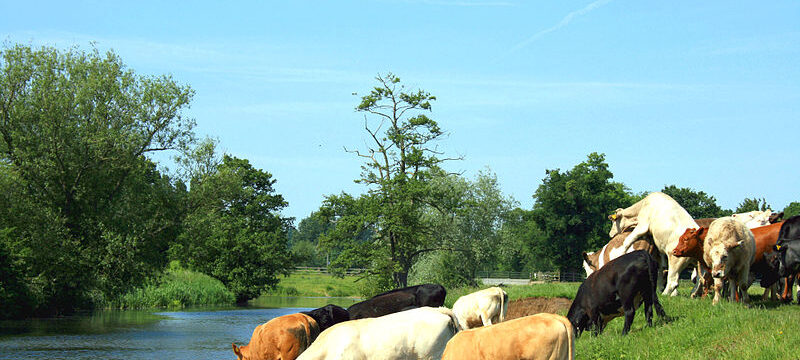Fresh water is an indispensable resource for the growth, development, and overall well-being of cattle. As ruminant animals, cattle have unique physiological requirements that necessitate access to clean, potable water throughout their lives. From supporting digestion and nutrient absorption to regulating body temperature and maintaining hydration, adequate water intake is essential for optimal cattle health and productivity. Let’s explore why fresh water is crucial for the growth and well-being of cattle.
Hydration and Temperature Regulation
Maintaining proper hydration is paramount for cattle, as water comprises a significant portion of their body weight and is essential for various physiological functions. Cattle rely on water to regulate body temperature through evaporative cooling mechanisms, particularly crucial during hot weather or periods of physical exertion. Adequate water intake helps prevent dehydration, heat stress, and associated health complications, ensuring cattle remain healthy and productive.
Digestion and Nutrient Utilization
Water plays a vital role in the digestion and utilization of feed nutrients in cattle. Proper hydration is essential for the breakdown of ingested feed, facilitating enzymatic processes and microbial fermentation in the rumen. Optimal rumen function relies on a consistent supply of water to support microbial activity and maintain rumen pH levels. Inadequate water intake can impair digestion, reduce feed efficiency, and negatively impact cattle growth and performance.
Milk Production and Calf Growth
For lactating cows, sufficient water intake is critical to support milk production and calf growth. Lactating cows have increased water requirements to meet the demands of milk synthesis and maintain hydration. Calves, particularly during the early stages of life, rely heavily on milk for nourishment and hydration. Access to fresh water ensures that lactating cows can meet their milk production needs while providing adequate hydration for nursing calves, promoting healthy growth and development.
General Health and Well-Being
Water is essential for maintaining overall health and well-being in cattle. Adequate hydration supports proper circulation, kidney function, and waste excretion, helping to prevent urinary tract disorders and metabolic imbalances. Clean, freshwater sources reduce the risk of waterborne diseases and microbial contamination, safeguarding cattle health and reducing the incidence of water-related illnesses. Regular access to water encourages cattle to consume feed and maintain appetites, promoting steady growth and optimal body condition.
Productivity and Performance
Water availability directly impacts cattle productivity and performance across all stages of growth and development. Well-hydrated cattle exhibit higher feed intake, improved nutrient utilization, and enhanced growth rates compared to their dehydrated counterparts. Inadequate water intake can lead to reduced feed consumption, weight loss, and decreased reproductive efficiency, ultimately impacting farm profitability and sustainability. By prioritizing access to clean, fresh water, producers can optimize cattle performance and ensure the long-term success of their operations.
In conclusion, fresh water is a fundamental requirement for the growth, health, and productivity of cattle. By providing continuous access to clean, potable water, producers can support optimal digestion, hydration, and overall well-being in their herds. From supporting lactation and calf growth to regulating body temperature and promoting general health, water plays a central role in every aspect of cattle management. By recognizing the vital importance of water, producers can cultivate thriving herds and sustainable agricultural systems.

